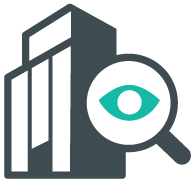The employees must eventually return to the physical workplace. A familiar workplace, yet still a completely different one. There will be more space between the desks, the machines, and the seating at lunch. Employees must wash and use hand sanitizer often. Some might even be nervous about getting ill.
There is a transition from the home office to the company’s physical office. Even though the employees know the company and work routines, you as a manager must still regard the situation as changed.
In this blog post, we list some main points for you to relate to when reopening the physical workplace.
1) Take the good experiences from lockdown
The American physician and author Dr. Spencer Johnson, who is known for the bestseller ‘Who moved my cheese?’, does a fine job illustrating how we react when we are faced with changes – or if someone “moves our cheese’.
According to Johnson, we take the role of one or more of these fictional characters.
- Sniff who quickly finds change.
- Scurry who starts right away.
- Hem who denies and opposes change of fear for it leading to something worse.
- Haw who learns to adapt in time when realizing than change leads to the better.
It is no understatement to say that covid-19 has moved the ‘cheese’ for many companies. Even though it is difficult for many (this must not be forgotten), it has also given us an opportunity to ‘search for new cheese’ and adapt to the situation we are in. It has opened our eyes to some new opportunities. Opportunities which we can learn from and take with us – even when everyday life begins to look like the one, we knew from before lockdown.
Our recommendation is therefore: Evaluate the situation and your processes during lockdown and take the best experiences with you onwards.
It will far from be the last time the ‘cheese will be moved’, and that is why we list a few golden Mr. Haw quotes for you to reflect on your new work situation:
- Changes happen – they move the cheese constantly
- Expect changes - be ready when the cheese is moved
- Keep an eye on for change – smell the cheese often so you know, when it is getting old
- Adjust to change fast – the faster you let go of old cheese, the faster you will get to enjoy new cheese
- Adjust – move with the cheese
- Enjoy change! Get a taste of adventure and enjoy the taste of new cheese
- Be prepared to adjust fast and then enjoy it again – they move the cheese constantly
2) Make practical changes adapted to covid-19
Is there enough space between the desks? Is it possible to air out regularly? Do you have enough hand sanitizer in stock?
Even though the companies are able to open more up, we still have to follow the instructions to keep a distance, wash our hands and so on. This is also important for employees who are returning.
Go through your daily routine in the workplace and make sure to create a setting that makes the employees feel safe when they return to work. Communicate all of this to the employees. It is not only about doing what is necessary, but also to clarify to the employees that you have made these changed – and invite them to a dialogue about it in the workplace.
3) Talk about illness and expectations
Make sure to address the new reality and the normal routine in the workplace. It is always good to be prepared to avoid awkward situations and misunderstandings – actions that are probably meant in the best way but because everything is new, one can easily do something “wrong”. Make sure to work with the trust between manager and employee. As long as there is trust, openness and room for dialogue, it is much easier to meet and navigate through this unknown landscape.
Also make sure to have clear guidelines and expectations regarding illness. When can you stay home? When can you return to work after illness? An employee who drags himself to work with a runny nose and who is a little heavy headed will do no good in these covid-19 times. If necessary, make an agreement that the employee can work from home, if they wish to work, even though they do not feel well.
4) Dialogues with focus on the coming months
It has always been important to keep good and engaging dialogues between manager and employee. This applies to both the development, motivation, and the operational part.
Make sure to have ongoing 1:1 dialogues the coming weeks and months. What do we need to focus on right now? Has anything been lost and needs to be corrected or catched up on? Make sure to set clear goals and expectations as well as break down the company’s bigger goals so that every employee can see their part in the big picture. That helps creates motivation and job satisfaction which has great importance for whether the employees thrive and perform.
5) Be especially aware of the employees’ well-being
The employees were first sent home to work for several weeks. Now some of them are returning to the workplace. This is a time with many changes, which can be stressful.
That is why it is quite important that you are aware of the well-being of your employees. Are they showing signs of stress? Do they feel uncomfortable about the situation? Or do they have a hard time adjusting to the new surroundings?
Have a dialogue regularly with your employees and ask the right questions, which potentially can lead to a talk about the issues at hand.
Read about preventing stress here.
6) Think of different scenarios so that you are ready to open even more up or closing more down
Do not just think of the coming weeks or months. Wear the long-term glasses and put up different scenarios so that you are ready to very quickly turn up or down on the workplace situation as the guidelines change.
Prepare so both managers and employees know what to do if the opportunity to open even more up emerges.



